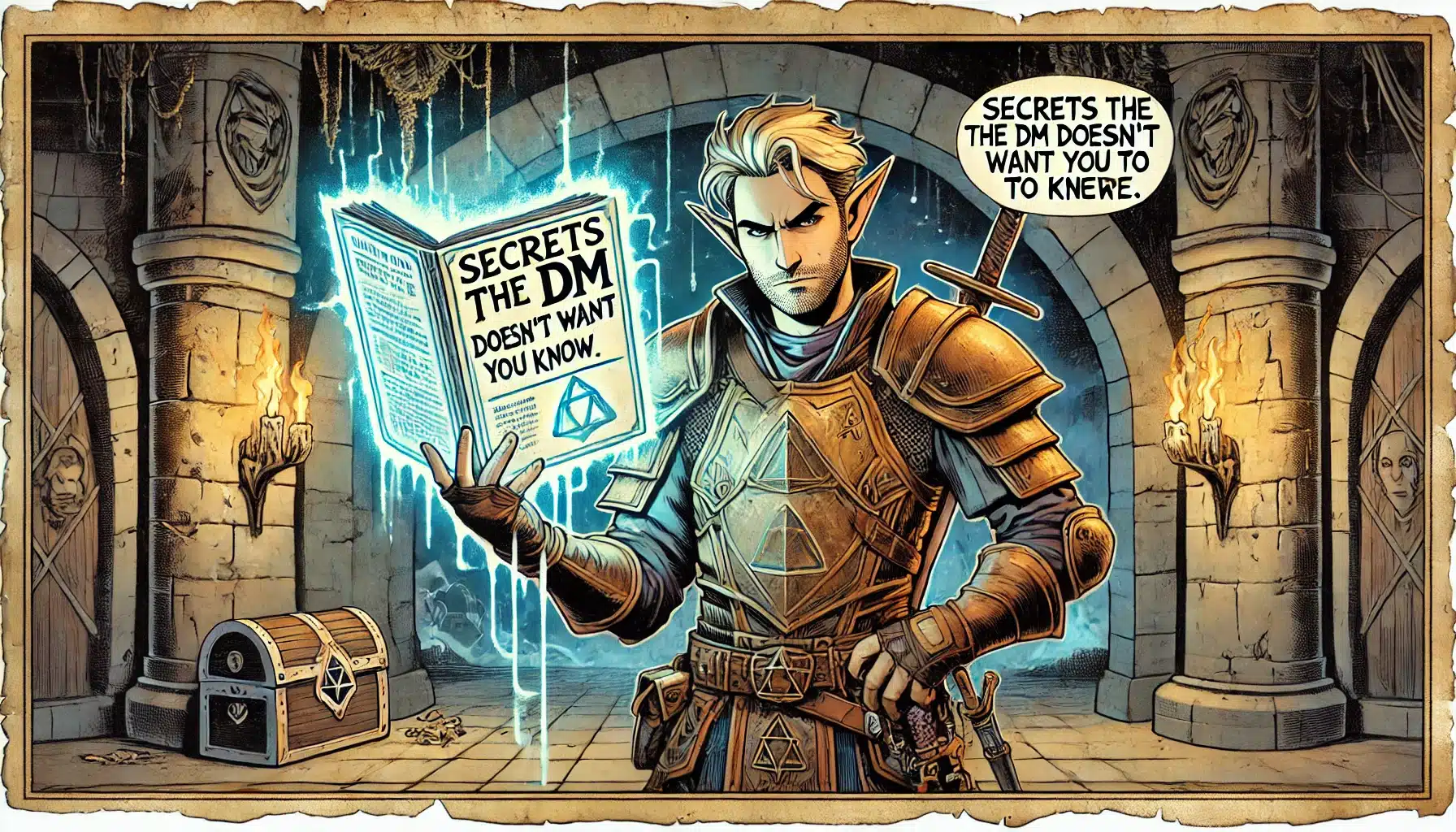As Dungeon Masters (DMs), we strive to craft enthralling tales and create immersive worlds where D&D adventurers can delve into mysterious dungeons, battle fearsome foes, and uncover hidden treasures. Yet, there’s a lurking specter in the realm of tabletop gaming that threatens to upend even the most carefully woven narrative—the phenomenon known as “meta-gaming.” Picture this: just as you’re about to unveil your most elaborate plot twist, one of your players bursts the bubble by recalling a monster’s weakness from its stat block. Suddenly, the magic is gone, and all that’s left is a sea of dice and broken dreams.
But what is meta-gaming exactly? It’s essentially when players leverage their own knowledge in situations where their characters wouldn’t have a clue. Imagine a character who’s never seen a dragon before, yet knows its breath smell better than its mother’s pies. This can lead to situations where the storytelling flow is disrupted, immersion is shattered, and one player wields overpowering knowledge like a well-sharpened longsword. Now, not all meta-gaming is born of villainy. In fact, some might even argue that a sprinkle of it is helpful. However, when it results in whole campaigns being thrown off course, something’s gotta give.
While some players may be tempted to dig into serialized adventure modules or familiar monster guides, others might simply have memories of past campaigns that still linger in their minds. Regardless of how it creeps in, the repercussions can ripple through your adventures, undermining the dynamic you’ve carefully sculpted. Does this mean we should hold tribunals to expel the meta-gamers from our tables? Of course not! Here’s the thing: the goal for a DM isn’t to punish players for their trespasses into realms of unnecessary omniscience but to manage such incidents tactfully. The challenge lies in preserving that precious balance of fair play and fantastical escapism.
For many DMs, the task can often seem daunting. Handling meta-gaming requires a finesse akin to playing a delicate symphony without missing a beat. But don’t fret, there are ways to keep the magic alive in your campaign without having to constantly wield the hammer of justice. So, fellow DMs, buckle up as we embark on this quest to explore the murky territories of meta-gaming—how it happens, why it happens, and most importantly, how we can keep our tables lively and balanced.
It’s clear that a session overwhelmed by rampant meta-gaming can stray far from enjoyable, quickly becoming an exercise of rule-lawyering rather than creative storytelling. Yet with a dash of understanding and a pinch of clever strategy, we can guide our players toward a campaign where our collective imaginations can soar without being shackled by the chains of excessive meta-knowledge. Let’s navigate these turbulent waters and see how we can turn our campaigns into legendary tales of fun and fairytale-like wonder.
Understanding Meta-Gaming: What It Is and Why It Happens
So, what exactly is this creature we call meta-gaming, and why does it lurk around the edges of our D&D campaigns? At its core, meta-gaming is when players use knowledge obtained outside of their character’s experiences to make decisions within a game. It’s like a knight suddenly knowing the floor plan of a castle they’ve never even heard of! While it’s not inherently evil, it can have a profound impact on the gaming experience.
Try my AI Tabletop RPG generators...and an extensive library of content!
For many players, it could be as simple as recalling the weaknesses of a vampire from past campaigns—a useful tidbit if a player wants to look smart, but quite the immersion killer when their character hasn’t even seen a bat in their life. Other forms of meta-gaming might be more subtle, like remembering a specific NPC’s name from the last time they heard it, even if their character definitely didn’t catch it the first time around.
Meta-gaming often happens when players are excited, and who can blame them? They’re participating in an epic quest, after all. However, this excitement can sometimes translate to players clutching at straws, using any thread of knowledge they can muster to ensure success. This isn’t entirely unexpected. In moments of high tension, the distinction between a character’s knowledge and a player’s becomes blurred. They might even turn to past campaigns, books, or the infamous depths of the internet to give themselves that slight edge.
Sometimes, meta-gaming is driven by a need for self-preservation. Characters are thrust into life-or-death situations—combat with a dragon, a deadly puzzle—so it’s little wonder that players, who often invest time and emotion into their characters, feel a need to ensure their survival. It’s like going into a fight and suddenly recalling everything you learned from Kung Fu movies.
On the other hand, there are occasions where players don’t consciously set out to exploit external knowledge. In experienced groups, habits form, and players might slip into thinking patterns that assume certain outcomes because they’ve seen them before. It’s a lot like muscle memory—except this time, it’s the mental maneuvers being enacted.
⚔️ Fantasy RPG Random Tables Books
Make life as a Gamemaster easier…
If you play Dungeons & Dragons, Pathfinder, or other fantasy RPGs, this
RPG random tables series
is packed with encounters, NPCs, treasure, and more. Available in eBook or print—either way, you’ll have a wealth of adventure ideas at your fingertips.
Ultimately, it’s crucial for DMs to comprehend that while meta-gaming poses challenges to maintaining a cohesive story, it’s rarely malicious. The key lies in recognizing the forms it can take and the reasons behind why these tendencies arise.
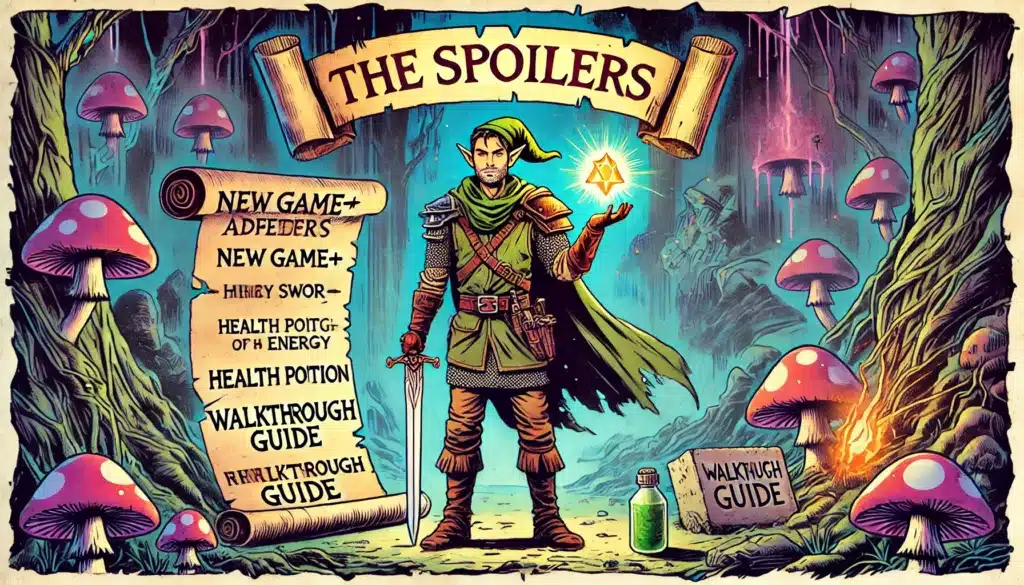
The Different Forms of Meta-Gaming (And Why Some Are Worse Than Others)
Let’s delve into the various shades of meta-gaming, which can range from minor quirks to campaign-crushing antics. First, we have those innocuous, almost forgivable instances—the kind that seasoned DMs might consider part of the game’s fabric. These include players knowing that trolls hate fire or that evil cultists probably won’t win the “Most Trustworthy NPC” award anytime soon. Such knowledge can streamline gameplay, making encounters fluid without compromising too much on immersion.
At the other end of the spectrum, we encounter real game-breakers: players who secretly peek at upcoming adventure modules or who memorize stat blocks for creatures, ready to recall them in a heartbeat during a critical battle. This kind of meta-gaming gives certain players an undue advantage, reducing the thrill of unpredictability which is a cornerstone of D&D’s charm. What’s worse is, it can lead to disenchantment among players who feel overshadowed by such omniscience.
Somewhere in the middle, we find instances where players utilize player-to-character insight, effectively conveying knowledge through their character that should otherwise be unknown. This could be someone accurately predicting a trap’s presence before even the first hint drops—a move that undercuts the tension for everyone involved. Alternatively, you might see a party suddenly loading up on anti-undead spells as soon as the DM mentions a graveyard, which should raise eyebrows but is often brushed off as “good prep.”
Meta-gaming, in any form, can occasionally add a layer of challenge that pushes players to think outside traditional character boundaries. Yet, when unchecked, it has the power to transform what should be thrilling exploration into a trivia match where the most encyclopedic player wins. Here are a few examples that encapsulate the essence of meta-gaming:
- Calling out hidden traps before they’re found.
- Recognizing a doppelganger because they “goofy smile” after failed shapeshifting.
- Preparing spells based on the DM’s subtle description of enemies rather than character reasons.
- Knowing the “weak point” on a Golem despite characters never facing one before.
- Preemptively attacking a friendly-seeming NPC based on player foreknowledge.
- Assuming every dragon has a treasure hoard due to common fantasy lore.
- Using out-of-game info to justify character actions during tense social encounters.
- Executing precise anti-boss tactics seen in D&D streams and videos.
- Taking a specific route to avoid ambushes discussed in D&D forums.
- Claiming items quickly as loot based on metagame knowledge of rarity/power.
- Selecting abilities expressly tuned for monsters anticipated by players but unknown to characters.
- Redirecting plot-line assumptions to sidestep surprises built into the story.
- Leveraging memes or cultural awareness to resolve arcane puzzles magically fast.
- Announcing practical actions read from Reddit threads as ‘clever insights’.
- Citing obsolete rules or lore overlooked by DMs hoping they’ll stick.
Interestingly enough, not all meta-gaming should be reprimanded. While some instances threaten to unravel the tapestry we’re weaving as DMs, others can genuinely lighten the atmosphere and enhance camaraderie. This dichotomy is crucial, for without acknowledging the grey zones, we risk alienating players who consciously mean no harm.
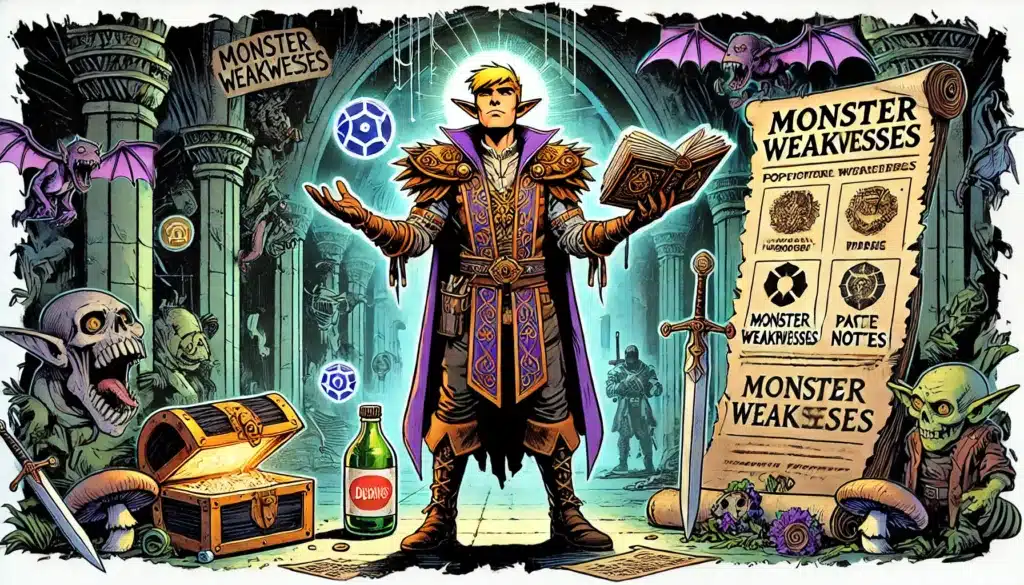
Why Do Players Meta-Game? Understanding the Motivation
So, why do these meta-gaming moments happen? How do otherwise dedicated role-players find themselves inching into this forbidden (in the RPG sense) territory? The motivations are surprisingly varied, rooted in not just instinct, but sometimes a genuine misunderstanding of what their characters should or should not be aware of.
Some players simply want to excel in challenges, optimizers who scour rulebooks and external scenarios, looking for that perfect synergy. Their meta-gaming grows from a place of excitement, seeking to maximize what their characters can do. They’re often the first to point out, “Well, actually…” when a situation doesn’t align with player experience. But this behavior isn’t born from malice; it stems from a love of mechanics and a deep desire to engage thoroughly with the game’s systems.
Then there are those motivated by fear—fear of losing. For them, the stakes are high, with years spent watching beloved characters rise through the ranks. They’re driven by the need to preserve these tales and thus occasionally break the limits of in-game knowledge. Their meta-gaming tendencies are not acts of disrespect, but rather desperate (and perhaps well-meaning) acts of character preservation.
However, a considerable subset of meta-gaming incidents arise purely from obliviousness. Newer players, unaware of the nuances between player knowledge and character knowledge, might not realize the faux pas they’re committing. Being told what they know shouldn’t magically transfer onto their character can feel like chastisement when they’re just trying to learn the ropes.
Another motivator is the culture of meta-gaming often cultivated around tables—whether it’s the gluttony of war stories or third-party resources flooding dialogues, players end up sharing game secrets that naturally seep into in-play scenarios.
⚔️ Fantasy RPG Random Tables Books
Make life as a Gamemaster easier…
If you play Dungeons & Dragons, Pathfinder, or other fantasy RPGs, this
RPG random tables series
is packed with encounters, NPCs, treasure, and more. Available in eBook or print—either way, you’ll have a wealth of adventure ideas at your fingertips.
Consider this table outlining these motivational nuances:
| Motivation | Manifestation | DM’s Approach |
|---|---|---|
| Want for Optimization | Using extra-D&D knowledge for efficiency | Reinforce the excitement of discovering in-game |
| Fear of Losing | Defensive actions beyond character’s foresight | Give reassurance; avoid discouraging risks |
| Genuine Ignorance | Lack of boundary between player and character | Gentle guidance; encourage role-play learning |
| Cultural Meta-Gaming | Group lore-sharing tendencies | Cultivate character-focused table discussions |
| Overreliance on Experience | Memory-based assumptions | Challenge past notions subtly with twists |
| Excitement for Mechanics | Eagerness to test learned techniques | Balance rules excitement with narrative stakes |
Meta-gaming motivations often carry hints of longing to participate more fully within the game world. Understanding why a player might lean into these tendencies equips DMs to adjust these actions with the patience and guidance needed. Let’s conclude this section by stating that understanding player motivations doesn’t just make remedying meta-gaming easier; it fosters a more accepting gaming environment where players can transition smoothly into character-driven styles of decision-making.
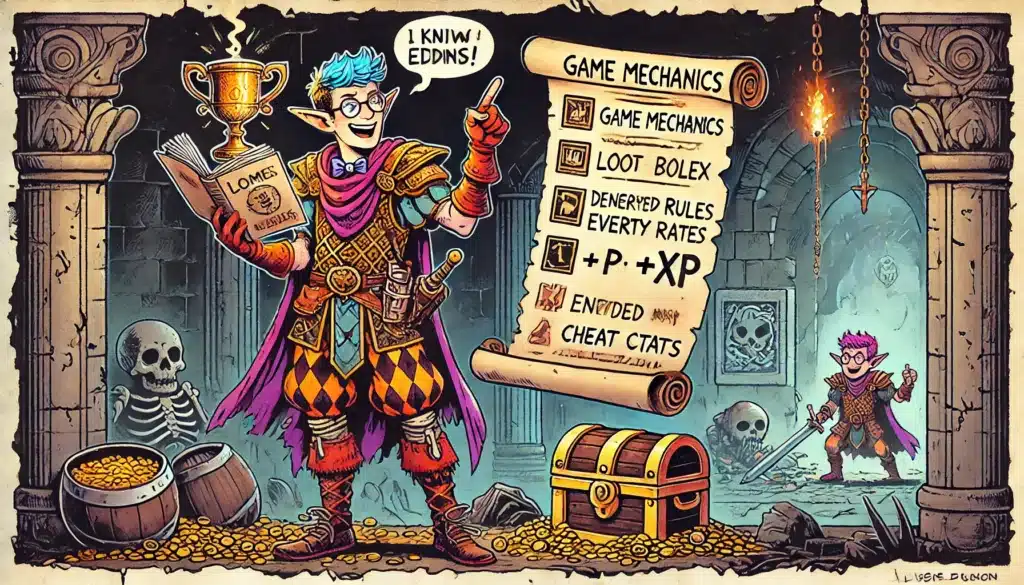
Strategies for Preventing and Managing Meta-Gaming
Handling meta-gaming isn’t about reigning down holy judgment. Nope, it’s more akin to shepherding your flock away from metaphorical cliffs—without squashing their joy along the way. The secret lies in establishing a gaming environment where player creativity flourishes without straying into these knowledge-laden waters. So, how does a DM efficiently mitigate those pesky meta-knows?
Firstly, it starts with expectation-setting. When DMs take the time to guide new players through what’s acceptable, everyone’s stories blend seamlessly with their characters’ intended journeys. By incorporating strategies to combat meta-gaming from the get-go, sessions become more immersive, and players, more engaged.
There’s an art in providing in-game solutions too. As a DM, making encounters dynamic and unpredictable often renders metagame knowledge ineffective. You want players relying on their characters’ wits, not their years of onboard encyclopedic memorization.
Encouraging roleplay also creates layers of meaning. When players are more invested in their character’s arcs, there’s less room for decisions motivated by extraneous trivia.
And finally, tackling those frequent offenders. Every table has one; the infamous repeat offender who brushes coarser house rules away. Rather than making you the campaign’s villain, addressing such occurrences in a positive manner fosters collaboration, positioning you as a guide rather than a rules dictator.
Understanding why and how meta-gaming manifests is only part of the equation; implementing strategies that prevent, detect, and counterbalance such scenarios ensures that your tale remains captivating and fun. Let’s unpack these strategies with an in-depth flip of the DM’s handy guidebook.### Setting Expectations: Discussing Meta-Gaming Before It Becomes a Problem
Setting the stage for a less intrusive meta-gaming experience begins even before your first dice is rolled. This means having those essential conversations during what’s often called “session zero.” It’s here that a DM and players align their expectations, setting up rules that ensure everyone knows what’s on the table—both literally and figuratively.
Why is this initial talk so quintessential? Well, it offers a platform to openly discuss what constitutes fair play in your specific campaign. Take the time to highlight how overreliance on player versus character knowledge can dilute the art of role-play and storytelling. In doing so, you’re setting a collaborative tone, welcoming players into a partnership rather than feeling like they’re signing up for a medieval dictatorship.
From my experience, these candid discussions can work wonders. It’s about finding common ground on the level of meta-gaming that’s okay and what crosses the line. Consider implementing some house rules specifically targeting meta-gaming infractions while inviting player input. What boundary might work at another table may not necessarily fit yours, so this customization is crucial.
Clear communication breeds understanding and may even unearth the unique play styles nestled within your group. Remember, the goal isn’t to hammer down regulations, but to foster an environment where players focus on embodying their characters rather than just “winning” D&D.
Try my AI Tabletop RPG generators...and an extensive library of content!
Below are some pointers to help establish these boundaries from the outset:
- Use a “trust the DM” rule: Encourage players to rely on DM-provided details.
- Emphasize roleplay-focused decision-making: Inspire creative character-driven choices over stat-based ones.
- House rule against excessive meta-knowledge: Make originality key to game success.
- Facilitate workshop sessions: On embodying one’s character through careful knowledge compartmentalization.
- Focus on character goals, not just player goals: Keep the emphasis on story rather than mere survival.
- Encourage players to gently call out meta-gaming when they see it: It becomes a group effort.
- Reward genuine in-character decisions: Offer in-game incentives for staying true to one’s character arc.
- Establish a culture of exploration and discovery: Keep curiosity as the currency of play rather than predetermination.
- Outline common-mything interpretation: Clarify fantasy lore applicable to your universe.
- Develop original content for a more organic flow: Limiting accessibility of game aids can manage metagaming temptations.
- Penalize repeated OOC knowledge breaches softly: Balance constructive feedback with continuing engagement.
- Leverage a feedback loop post-session: This helps in addressing issues before they fester.
Implementing these strategies means everyone leaves feeling responsible for maintaining the game’s integrity. Doing this groundwork helps anticipate and, more critically, prevents many meta-gaming issues before they ever start.
Moving forward, let’s dive into how in-game manipulations can naturally reduce the effects of meta-gaming, preserving the game’s challenging essence without alienating our meta-prone adventurers.
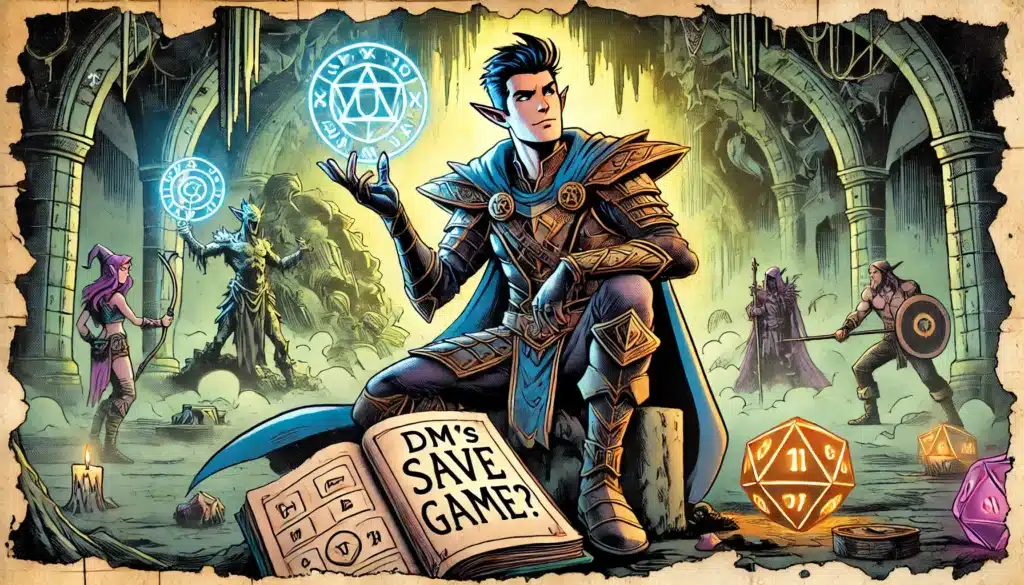
In-Game Solutions: How to Make Meta-Gaming Less Effective
Now that we’ve set the stage, let’s look at crafty ways of keeping our tales dynamic and unpredictable. Done right, a DM can tempt players into watching the intricate dance of the story rather than trying to shuffle backstage with unauthorized insights. For instance, making sure encounters are rich with curves, changing latticework when the party least expects it, effectively nullifies player-borne spoilers.
When you thoughtfully adapt adventures to your players, throwing wrenches in the expected, you cultivate suspense. Perhaps the dire wolves have learned better ambush tactics over centuries, or the dragon’s lair reeks not just of sulfur but of desperation—a relic of recent battle perhaps?
One useful tactic involves describing entities and events in fresh, less typical ways. That troll doesn’t have time for obvious fire worries when it’s focused on an unexpected transformation halfway through combat—a new twist the players couldn’t possibly foresee! Using this approach tends to take the wind out of pre-calculated strategies honed most often by meta-gamers.
Consider these potential in-game scenarios:
| Scenario | DM’s Subtle Counteraction | Keeping the Challenge Fair |
|---|---|---|
| Players know all monster stats | Use unique adaptations of familiar creatures | Maintain creature essence but with plot-related twists |
| Predictable plot elements | Alter narratives to introduce new storylines | Ensure themes are diverse and engaging |
| Recognizable terrain patterns | Remap identical geometries with novel descriptions | Allows spatial awareness without spoilers |
| Anticipated “endgame” boss battles | Add layers—boss uses minions or environmental war | Balances preparedness with unpredictability |
| Assumed safe journeys over traversed regions | Randomize road encounters | Boost risk awareness in previously “safe” zones |
| Expectation of rigid dungeon designs | Employ adaptable traps and puzzles | Encourage problem-solving but stress new strategies |
| Generic NPC tropes known to players | Develop character backstories with new dimensions | Promotes variance without losing traditional roots |
| Treasured relics with celebrated properties | Mask their true power behind trials or merchant fails | Forces players to explore these journeys genuinely |
| Unchanging spell effects versus monsters | Allow for unpredictable monster defenses | Keeps spellcasters on their toes |
| Pre-discussed campaign arcs influencing play | Use red herrings to diverge expected narratives | Engages players in curiosity-driven divergence |
Natural in-game solutions are less about convoluting the saga with incessant intricacies and more about diversifying how players engage the world. This means subtle countering—the aim is to pivot discussions towards exploring what’s novel in seasoned worlds shaped by your players themselves.
Don’t let fear of a player’s extra-game knowledge curb your enthusiasm. Remember, it’s about maintaining that delightful dance between plot predictability and astonishing turns. Sowing seeds of doubt and wonder helps retain the spark of discovery and is vital for engagement.
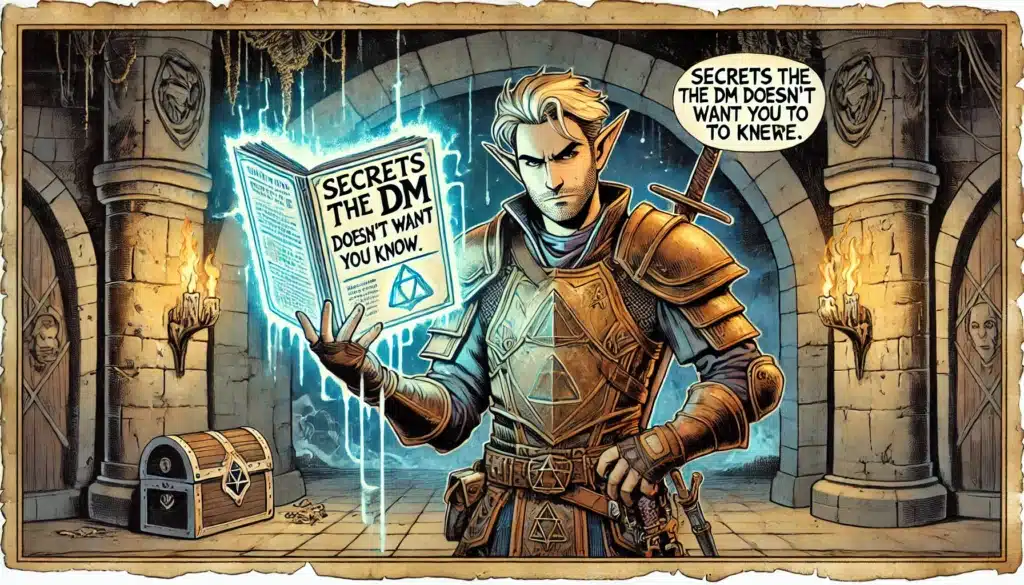
Encouraging Players to Stay in Character
One of the most effective buffers against meta-gaming is bolstering the joys and intricacies of roleplaying. When players are heavily invested in their character’s unique standing, desires, and flaws, reliance on extrinsic knowledge naturally ebbs away. They dwell more intensively inside the game world, plucking decisions from character awareness rather than player experience.
But how do you encourage players to stay in character? Start rewarding good roleplay in creative ways. “Inspiration” points for in-character actions or innovative solutions keep roleplay alluring. It nudges players towards a narrative-first approach, making the game about more than just dice mathematics.
Another engaging method is introducing lore through NPCs or story artifacts that characters—rather than players—can access. Imagine an NPC bard revealing secrets through song, enlightening the party in-character rather than leaving players to figure it out on their own.
Consider these surefire ways to elevate in-character decision-making:
- Reward authentic roleplay with inspiration: Keeps character motives centric.
- Generate mysteries only solvable within the storyline: Elevates the importance of character-centric problem-solving.
- Encourage emotional resonance with NPCs: Builds character attachment beyond utilitarian relationships.
- Initiate quests locked behind character-dependent challenges: This way, character skill sets lead discovery.
- Foster experience-based knowledge of the world’s cultures: Avoids prescriptive knowing from player perceptions.
- Leverage tests that gauge character-specific lore in dialogical depth: Adds immersion with character-relevant dilemmas.
- Use subtle puzzles demanding creative thinking over checklist checking: Fosters ingenuity aligned to character strengths.
- Infuse distinctive customs within the realm: Lends cultural integrity—players need to interpret rather than just react.
- Provide dynamic feedback loops focused on personality/trait displays: Reinforces character authenticity.
- Nurture ‘in-game’ relationship growth outside combat: Broadens investment into roles, not roles as combat enablers.
- Develop exclusive character partnerships impacting larger events: Engages individuals on personal quests.
- Create intersecting backstory challenges between player-characters: Motivates cross-character interactivity.
- Invite cultural or class histories to influence session outcomes: Respects lore while deepening in-character narrative.
- Construct narrative resolutions mandated by character cores: Attaches significance to roleplaying agency.
- Showcase the ramifications of character decisions across arcs: Enhances belief in role impact and its tangible consequences.
By implementing such approaches, not only does the transition back to character thinking become blissfully smooth, but it also curtails the desire for players to step out of their roles in search of an easy “out.” Immersion then feels less optional, instead becoming a tantalizing necessity, eschewing meta-gaming tendencies over time.
As we journey deeper into our understanding of meta-gaming nuances, let’s now explore strategies for dealing artfully with players who’ve made an infamy out of meta-gaming.
⚔️ Fantasy RPG Random Tables Books
Make life as a Gamemaster easier…
If you play Dungeons & Dragons, Pathfinder, or other fantasy RPGs, this
RPG random tables series
is packed with encounters, NPCs, treasure, and more. Available in eBook or print—either way, you’ll have a wealth of adventure ideas at your fingertips.
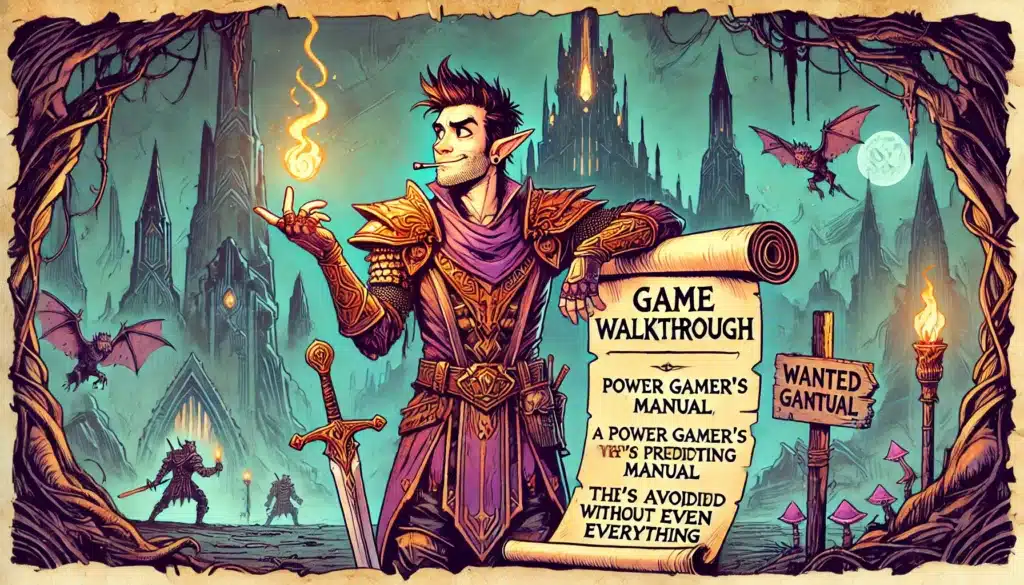
How to Handle a Chronic Meta-Gamer Without Ruining the Game
When it comes to chronic meta-gamers, the kind who can’t seem to resist peeking behind the DM screen no matter how many times they’re encouraged to stay in character, patience and diplomacy are key. Addressing perennial offenders requires a delicate touch; these discussions shouldn’t feel like a public stoning in the town square. Instead, they should draw players into an earnest dialogue about the game’s communal joy and balance.
Let’s start with the first bridge every DM must cross: identifying why this player consistently resorts to meta-gaming. Is it a natural inclination to optimize every situation, or perhaps a lingering habit from games with less focus on narrative? Understanding their motives will guide the approach. Once you know where they’re coming from, you can engage them in a productive way.
A personalized approach typically pays dividends. It might help to bring them into a private discussion, framed as time for feedback or a one-on-one talk about how to enhance the play experience. This avoids singling them out in front of the group, which can make them feel defensive. Highlight the collaborative nature of the game, where everyone’s fun can be enriched by embracing unpredictability and role-based decision-making.
For the tactful DM, empathetic language does wonders. Express the impact their meta-gaming is having without putting them in the hot seat. Perhaps invite them to consider new ways to engage with challenges that don’t rely on player knowledge. When they move the focus from mere success to robust character development, everyone wins. Here are some strategies for addressing this:
- Frame the conversation as a team discussion: Emphasizes collective enjoyment over individual wins.
- Lean towards understanding their perspectives: Place concern over criticism.
- Practice transparency about the importance of narrative immersion: Shares the DM’s desire for engaging storytelling.
- Encourage them to become a ‘champion for immersive play’: This reinvents their role positively within the group.
- Explore storytelling perspectives from both sides: See where the disconnect lies.
- Offer them in-game roles reflecting narrative leadership: This gives them narrative control without meta-gaming.
- Use relatable analogies when explaining the downsides: Allows them to see the bigger picture.
- Check-in regularly—shift meta-tendencies while reinforcing engagement: Align their character’s impact with story progression.
- Encourage proposing unique problem-solving mechanics pondered by characters: Steers them toward creative thinking within constraints.
- Discuss the communal story damage caused by meta-game: Foster group empathy.
- Reflect personal growth upon staying in-character successfully: Renders remaining true-to-role rewarding.
- Reaffirm their value within the group dynamics: Invites them to contribute via character rather than metagame knowledge.
Remember, the ultimate goal is not to stifle someone’s enthusiasm or drive them away from the table, but to guide them toward a richer gameplay that benefits everyone. Shifting into tactics to reduce opportunities for meta-gaming creates a unified effort under the guise of diversifying the players’ experiences.
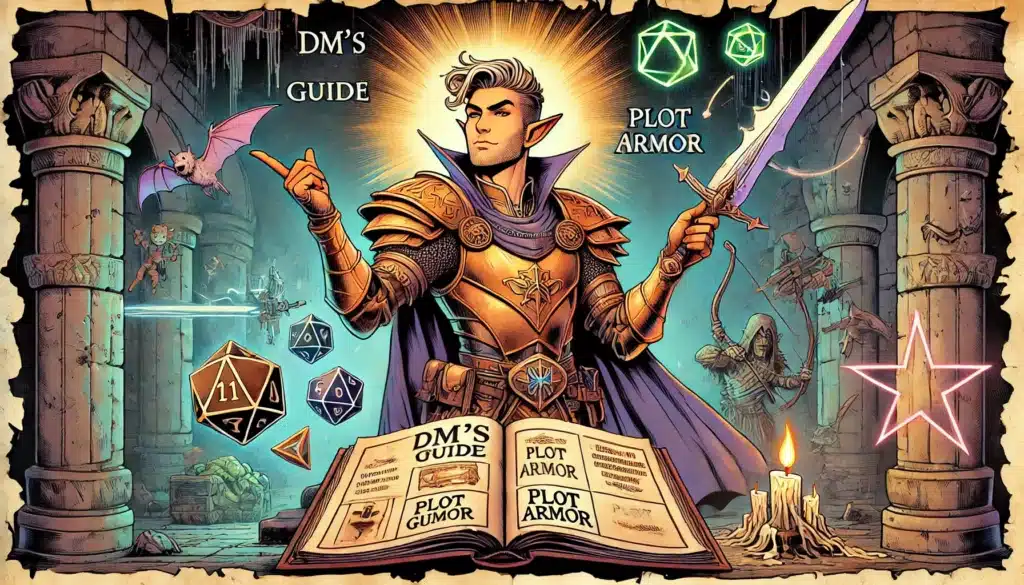
Adjusting DM Tactics to Reduce Meta-Gaming Opportunities
The table’s flow can subtly shift from meta-gaming territory with the right DM tactics. Often, DMs need to think on their feet, adjusting the delivery of narratives or challenges to minimize meta-gaming opportunities. The less predictability players encounter, the lesser they feel tempted to fall back on player knowledge alone.
One adjustment could be altering how information is presented. Describing monsters and encounters with vague language that references qualities unknown to the players is a great start. This gives characters room to make discoveries based on behaviors rather than recognizable stats. Adding complex mechanics or environments that prompt critical thinking can shift focus away from meta-gaming and encourage fresh problem-solving approaches.
Moreover, effective DM techniques often recycle and mold narrative motifs differently every new arc, limiting players from reliably predicting patterns. Here’s a closer look at how those variations might look:
| DM Adjustments | Impact on Meta-Gaming | When to Implement |
|---|---|---|
| Describe monsters vaguely | Disables immediate player recognition | Introduce with new NPCs or unique descriptions |
| Use non-linear plot progressions | Breaks player assumptions on story arcs | When storylines feel too predictable |
| Switch up encounter language | Encourages reliance on character insights | Before introducing a familiar setting |
| Rotate session styles frequently | Keeps players engaged with different methods | Upon a noticeable dip in focused role-play |
| Manipulate environmental cues | Alters expectations for problem-solving | During session when anticipating meta-consultations |
| Encourage in-session character focus | Centers dialogue around character experience | As a storyline develops deep lore integration |
| Craft role-specific side quests | Incentivizes players to rely on character capabilities | When focusing on individual character arcs |
| Reward narrative creativity | De-emphasizes mechanical wins in favor of story | Upon observing reliance on predictable strategies |
| Change how and where clues are given | Forces reliance on varied exploration tactics | To shy away from repeated narrative tropes |
| Avoid recycled stat-based challenges | Shifts goal-oriented thinking to more thematic | During major milestones or climatic encounters |
The beauty of shifting tactics lies in perception. Adjustments should feel organic, woven seamlessly into the narrative fabric rather than painted over obvious cracks. It’s less about building walls against meta-gaming and more about laying paths the players are eager to traverse.
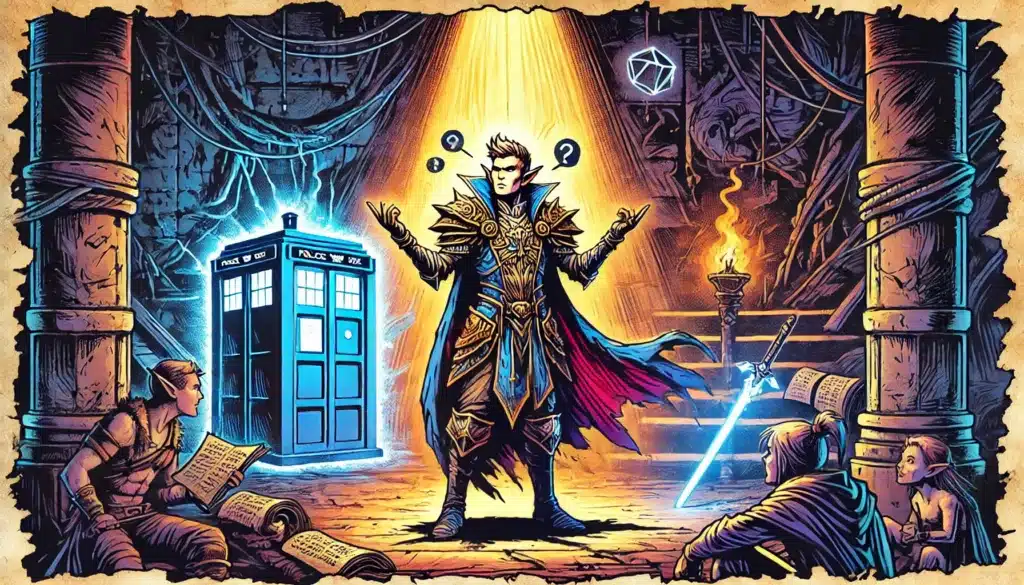
When to Let It Slide: Picking Your Battles
However, not every battle against meta-gaming is worth sharpening your swords over. There are moments when a little in-game knowledge can ease pacing, facilitate newer players’ progression, or guide unlikely heroes to unforeseen camaraderie. Knowing when to let what pass doesn’t mean lowering narrative standards, but it does help prioritize gameplay fluidity.
Here’s the irony: the very thing that often disrupts a DM’s carefully crafted adventure—that bit of unchecked knowledge—can sometimes enhance gameplay. Such instances can propel sessions forward that might otherwise drag. Just imagine a character reasonably filling in gaps in lore where all players draw on familiar fantasy tropes. If the meta-gaming happens towards improving party cohesion or nudging someone past a narrative block, call it serendipity.
Here are some occasions where meta-gaming might genuinely lighten the load and save the day:
- It aids a lagging battle session with improved tactics: Allows focus on emerging outcomes.
- It salvages a session stalled by back-and-forth planning: Increases interest without abandoning story goals.
- It helps introduce newbie players to faster-paced action: Enhances initial immersion till they find their footing.
- It translates shared expectations in mystery-solving tropes: Bolsters excitement from achieving smart “aha!” moments.
- It expedites procedural research-like narrative downtime: Relieves character redundancy tension.
- It bridges player communication for pre-established friendships: Reinforces bonds without slipping out of character.
- It cultivates a sense of comfort or relief during tense cliffhangers: Elevates complete narrative transitions.
- It meshes character growth closely around out-of-game developments: Aligns representational dynamics.
- It hints towards light-hearted solutions in relentless arcs: Introduces variety without ending play.
- It facilitates creative synergy within rule experimentation: Adjusts gameplay for experiential inclusivity.
As with all gaming decisions, it’s about weighing pros and cons and ensuring these allowances don’t maliciously overshadow other players’ experiences. Balancing rigidity with flexibility creates an atmosphere where surprise and comfort walk hand-in-hand.
In every session, the DM dances an intricate narrative ballet between control and chaos. Sometimes, allowing a little leeway spices up the game where adherence to rules might otherwise stagnate sessions. Choose battles wisely—a vibrant tale rather than a draconian ruleset achieves cooperative exposition. And that, my friends, is what D&D is all about.
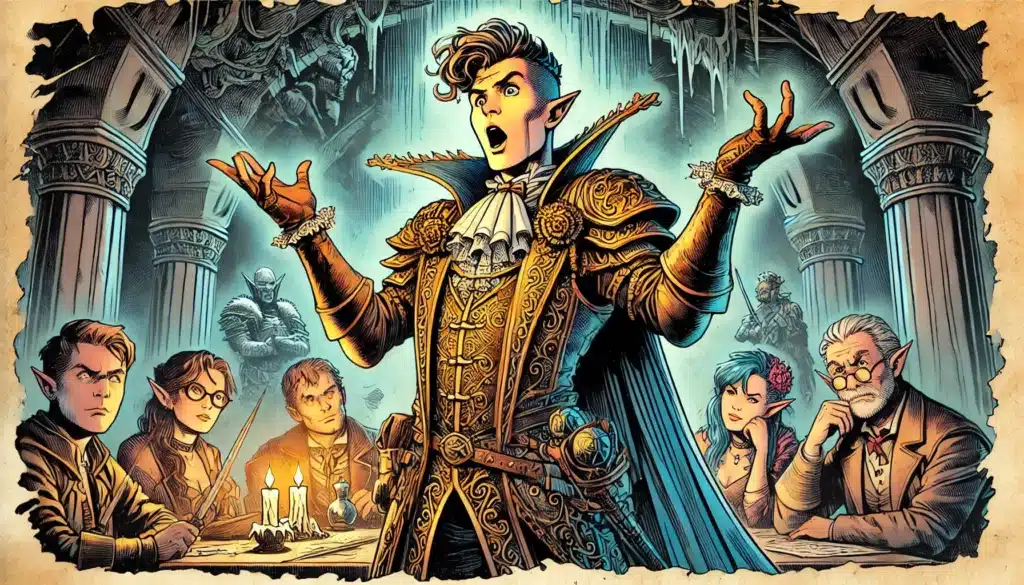
Final Thoughts on Managing Meta-Gaming in D&D
Meta-gaming can sometimes feel like that awkward relative at the family reunion: it’s always there, but how you deal with it makes all the difference. Whether through setting expectations early on, adapting in-game solutions, or embracing story-driven roleplay, the trick lies in turning potential disruption into narrative gold. It’s a reminder that D&D, while guided by rules, flourishes most wordlessly tethered to creativity and shared exploration.
Set expectations with clarity and compassion. Address meta-gaming collectively, not divisively. Craft challenges inclusive of all characters, encouraging players to rely on nuanced intuition rather than meta-knowledge for triumph. Embrace dynamic shifts. If a gentle touch of meta-gaming absolves hidden plot quagmires, why not let players share wisdom unconsciously groomed for moments in need?
Managing meta-gaming isn’t about placing constant limits, but rather fostering an environment where players revel in the importance of immersing fully into characters. Encourage the organic expectation that while meta-gaming pops the balloon of narrative flow, learned presence re-inflates.
Ultimately, remember a simple truth: Some level of meta-gaming is as inevitable as dice rolls clattering on a tabletop. It’s unavoidable. But the way it’s handled—by welcoming introspective conversations and facilitating vibrant, thrilling adventures—ensures its presence isn’t merely tolerated. Instead, it bolsters the game for each and every player.
Go forth, DMs! Arm yourselves with wisdom and wit, crafting stories that welcome the quirks, mishaps, and adventureralities of your players’ alter egos. Charge into those revered campaigns—conversing candidly, strategizing smartly, and always championing the spirit of storytelling sans the harsh glare of meta-glasses. The quest is yours to create.

